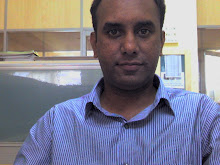Price rise is not just restricted to India, it has acquired international proportions. Several countries are facing a shortage of foodgrains. Recently I visited Kuala Lumpur in Malaysia, where there is severe food shortage.
Countries like Bangladesh, India's other neighbors and even some of European countries are reeling under food and fuel crisis. Their condition is worse. The Indian government has made provisions to ensure basic food is available to the poor and no one sleeps hungry.
Exports have been stopped, concessions have been announced and customs and excise duties on essential commodities slashed. All over the world the prices of steel, cement and fuel are witnessing an upward trend.
Indian Railways after 60 years of independence has created a huge buffer stock of foodgrains. Now we do not have to import foodgrains. There is no necessity to maintain such a huge buffer stock and the problem now is how to dispose it off.
Forward trading of certain essential commodities that was operated from Mumbai, has been stopped after we realized it was fueling price rise. Private players, involved in forward trading, used to purchase grains directly from farmers at prices higher than FCI (Food Corporation of India). I have contributed in a large way to Sharad Pawarji's efforts to arrest the galloping prices. I have directed that Indian Railways will upload grains purchased by FCI first. The foodgrain stock of private players will be uploaded only after that.
We have announced minimum support price for wheat and rice. While it benefited, it has also created problems. Coordination should have been more but it takes time. Today we are a buffer state. Consumption of fuel in India has increased drastically. The 'haves' have minimum five cars leading to increased consumption of fuel. Wood was earlier used as fuel, now every household uses domestic gas. One-third of the diesel imported by the country is used by Indian Railways.
Though the operating cost of the Indian Railways has gone up, we have not raised rail fares, on the contrary, we slashed the rates. Increasing prices of fuel was unfortunate, we had no option. We have to face realities as we do not have any other options. The oil cartel is bent on increasing prices of fuel. Even the European countries had witnessed opposition to the fuel price rise. We brought into effect only the minimum possible raise in the prices of petro products.
It is very unfortunate that the government had to increase the rates of domestic LPG too. The Prime Minister has appealed to state governments to slash sales tax and VAT, to reduce the burden on consumers. Everybody has to realize and share the burden. This is a temporary phase and the conditions will certainly change for the better in the near future. Middlemen hoping for a kill raised the prices of commodities, to cash in on the expected increase in salaries of government personnel announced by the Sixth Pay Commission. Everyone from retailer to wholesale dealers, are taking their pound of flesh, but the farmer continues to reel under poverty.
It is true that common man is suffering due to inflation as India is a developing country. The government has made provisions for providing free ration of 35 kg to those below poverty line so that the common man is not affected by the price rise. But the government schemes have to be implemented properly.
People have also been provided jobs under the National Rural Employment Guarantee Programme (NREGP), so that it helps common man earn two square meals. The state governments should implement the NREGP in its true spirit. Earlier too, nutrition- rich foods like eggs and fruits were beyond the purview of common man due to the high costs. It is only a miniscule few who are able to afford the items. The poor survive on potato curry in case of inability to afford dal-chawal. Poor man knows how to sustain himself in the backdrop of price rise.
The government has devised schemes, like PDS (Public Distribution Scheme), to mitigate the problems of common man. However the welfare measures should be implemented strictly so that the common man stands to benefit from the schemes.


No comments:
Post a Comment